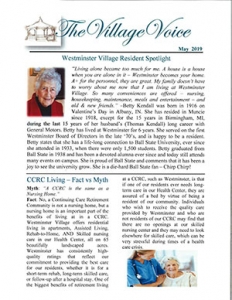Chaplain’s Corner: LXXXIV
“You Are the Salt of the Earth”
The Jesus following life doesn’t begin with a list of “you ought to be’s.” It starts
with the words “you are.” This is a big deal. People are typically prepared to hear
a track coach or military general or even a Bible waving preacher set out the
territory urging us to become one or be conquered. “Here’s what you’re going to
have to do, and it’s not going to be easy.” We are used to being challenged to
become what we should be.
But Jesus comes at things from the other direction. Before He tells us what to do,
He tells us who we are. Rather than urging us to become what we ought to be, He
simply states we should be what we already are.
According to the Sermon on the Mount, if you’ve thrown in your lot with Christ,
you are exactly what the world needs. But since modern Americans have become
anxious about their sodium intake, is it really a happy thing to be identified as
salt? It is indeed. When Jesus’ original listeners heard him say they were the salt
of the earth, as many as five things might have come to mind.
First, salt was a symbol of Purity. The salt crystals that we shake onto our green
beans are almost totally intermingled with other compounds. Salt was valuable
enough in the ancient world to be used as a form of payment. To this day someone
might say, “He’s worth his salt.” The word salary itself is directly related to those
little crystals.
Second, Jesus’ mention of salt connoted Flavoring. Salt provided seasoning in a
nearly spice-free diet. Salt makes almost everything taste better. We are meant to
be the spice that flavors society; that takes the edge of the world in which we live
and bring joy and pleasure and a heightened sense of taste wherever we go.
Third, salt was the finest Preservative known in the ancient world. Salt kept good
food from going bad. Salt was just about the only way to keep meat and fish safe to
eat.
Fourth, salt as known to advance Healing. Most of us have experienced that
momentary sting, but then the soothing comfort, of plunging a skin wound into a
saline solution like the ocean.
Finally, salt Kills. Those of us who live in a part of the world where streets are
routinely salted during the winter months are aware sodium chloride’s ability to
help melt snow and ice- and to leave behind a “death zone” where weeds and grass
will struggle to grow next spring.
Purity, Flavoring, Preserving, Healing and Cleansing. That’s what it means to be
the salt of the earth. The problem is that we’re not much good to the earth if we
spend most of our hours inside a salt container-even a beautiful one like a church
sanctuary or a cozy spot in your apartment where you can read or watch TV.
Our grandparents called their little bottles of seasoning “salt cellars.” We
must get out of the cellar and into a salt shaker-into any ministry or relationship
that challenges us to do what we’ve always been called to do.
Our call is to be a healing, cleansing, preserving and flavoring presence wherever
we go. Jesus, after all, would definitely be the first person to say, “Please pass the
salt!”
Faithfully,
Ron Naylor, Chaplain











